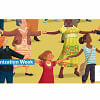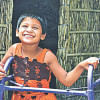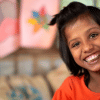People with disabilities
According to World Health Organisation (WHO), around ten percent of the population of Bangladesh are comprised of people with disabilities (PWD). In Bangladesh, most of the PWD live in rural areas.
It is an unfortunate reality that the needs of the PWD in Bangladesh are overlooked, largely due to the ostracism of PWD from mainstream society. Poor women and girls with disabilities -- often subjected to social and family violence -- are among the most vulnerable and oppressed members of society.
Despite having ratified the UN Convention on the Rights of Persons with Disabilities (CRPD) and passed the Disability Welfare Act, Bangladesh has a long way to go in terms of ensuring the constitutional rights of the PWD. According to Ain o Salish Kendra, a meagre four percent of children have access to education in any form. PWD are often forced to drop out of the workforce because of discriminatory policies and hostile attitude. For instance, the RMG sector, one of the main drivers of our economy, has come under fire due to unfriendly environment at the workplace. Barriers to the wellbeing of the PWD include inadequate medical services, lack of job opportunities, discriminatory institutional policies and social stigma.
The plight of the PWD and the urgent need for their full integration into society must not lose focus. The Sustainable Development Goals (SDGs), in including the PWD in their development policies, have given the issue new momentum. The government must fulfil its duty of fully implementing the policies in place and be committed towards safeguarding the rights of the PWD for a more inclusive, egalitarian society.

 For all latest news, follow The Daily Star's Google News channel.
For all latest news, follow The Daily Star's Google News channel. 







Comments